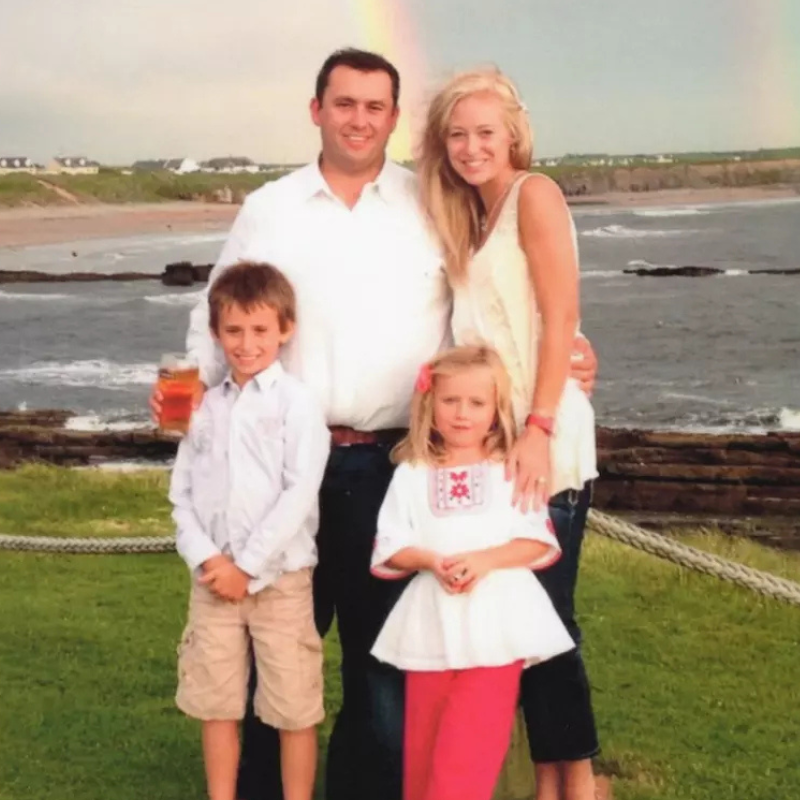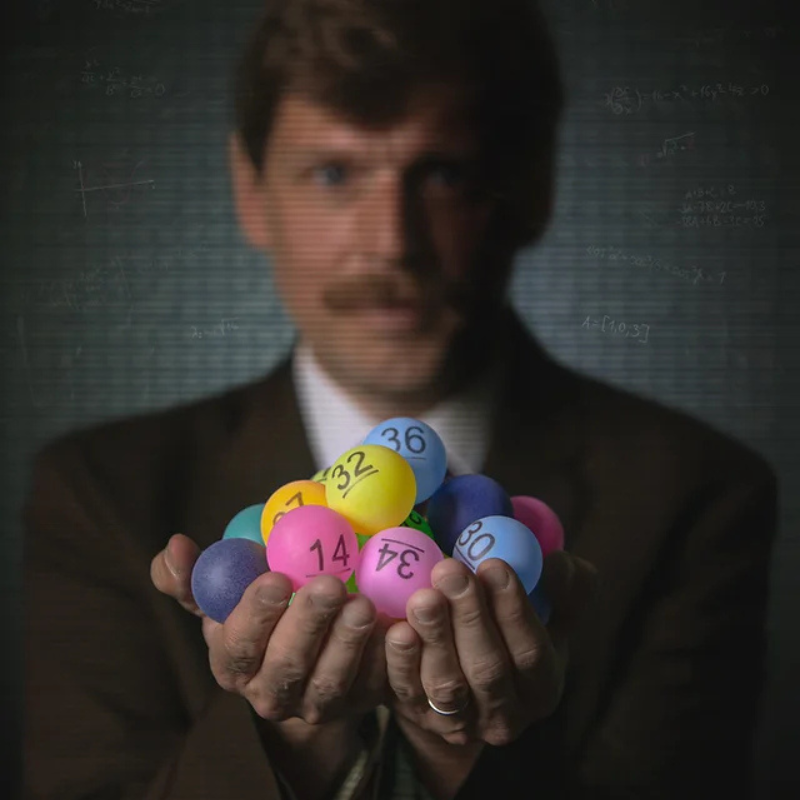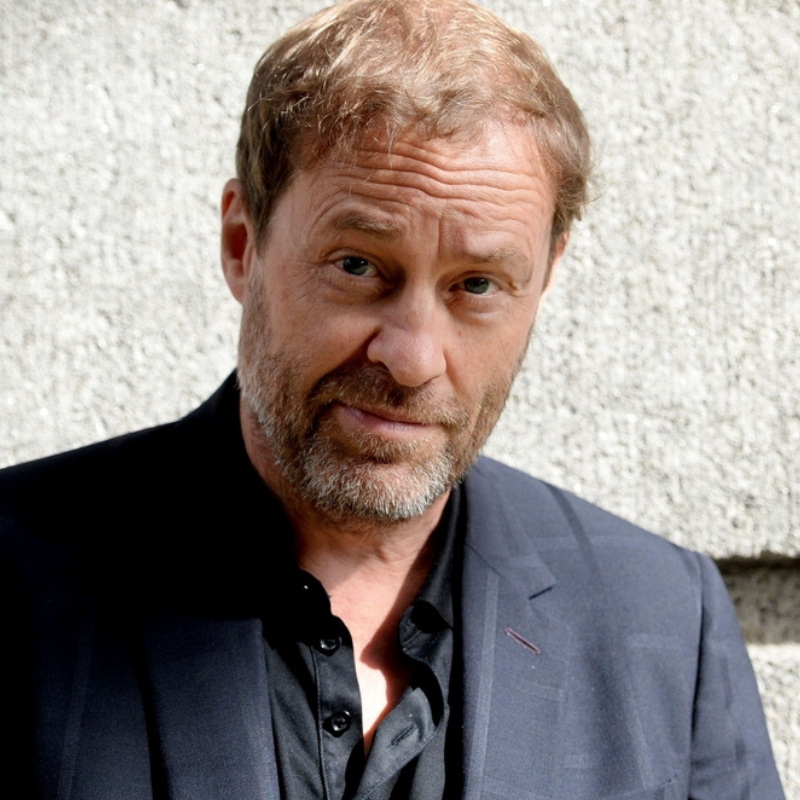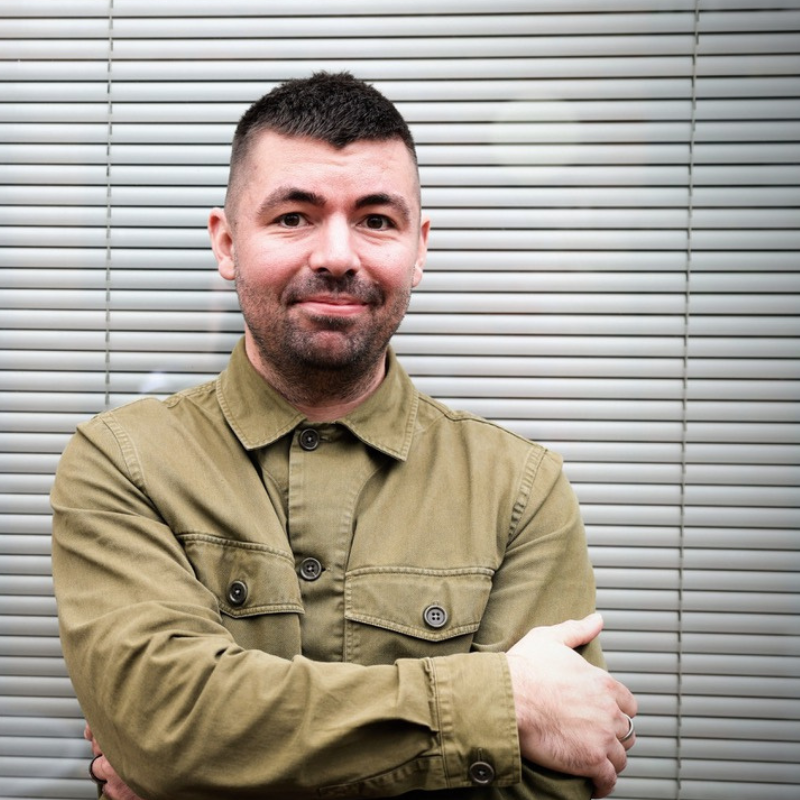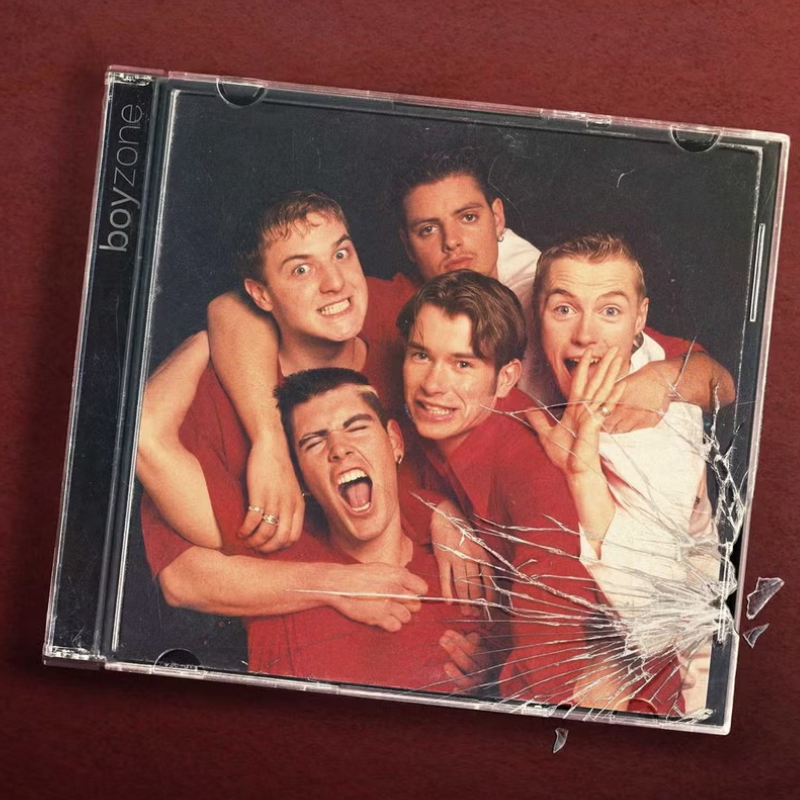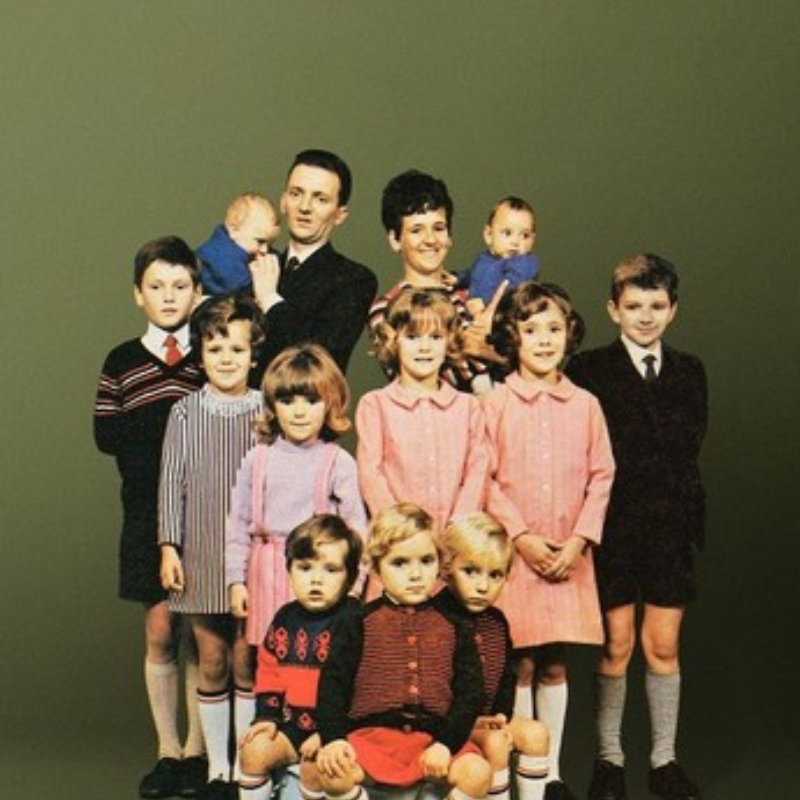DEATH OF A SHOWJUMPER prems Jul 16
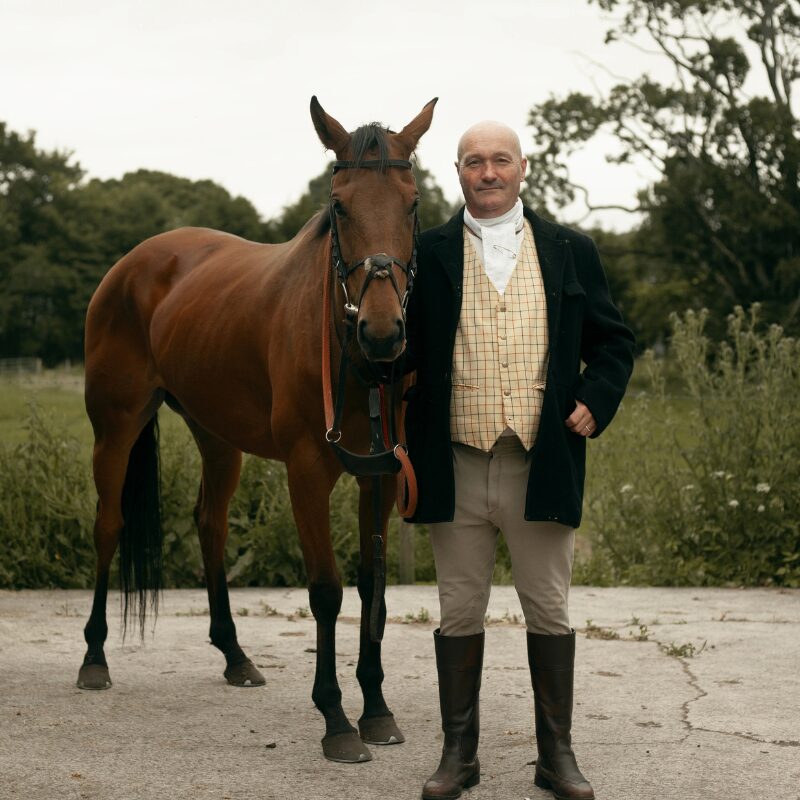

When 21-year-old Katie Simpson died unexpectedly in August 2020, the tight-knit showjumping community in County Londonderry, Northern Ireland, accepted what seemed like a tragic but straightforward conclusion: the promising young jockey had taken her own life. But one local journalist wasn’t satisfied with the official narrative, and her persistent questioning would eventually expose a horrifying truth that shattered the veneer of a seemingly perfect sporting world.
The new Sky Original documentary DEATH OF A SHOWJUMPER, streaming from July 16, tells the shocking story of Katie’s murder in three gripping 45-minute episodes. What emerges is a disturbing tale of violence, coercive control, and the systematic abuse of a young woman who should have been protected by those closest to her.
Katie’s death initially appeared straightforward enough. On August 3, 2020, Jonathan Creswell – an influential champion showjumper, jockey, and horse trainer who was also her sister’s partner – drove an unresponsive Katie partway to Altnagelvin Hospital before transferring her to an ambulance. He told paramedics and police officers that Katie had attempted suicide, explaining the bruising on her body as injuries from a recent fall from a horse. Katie died in hospital seven days later without regaining consciousness.
But the local court reporter Tanya Fowles couldn’t shake the feeling that something was wrong. Katie’s case triggered memories of an old story she had covered – one with too many disturbing similarities to ignore. Her suspicions centered squarely on Creswell, whose position of influence within the showjumping community had seemingly protected him from scrutiny.
In February, Justice Minister Naomi Long announced an independent review into the case, acknowledging the serious questions raised about how the investigation was initially handled. The documentary arrives at a time when these institutional failures are still being examined and when Katie’s family continues to seek answers about what went wrong.
Directed by Niamh Kennedy and produced by Natalie Maynes, DEATH OF A SHOWJUMPER is a Walk On Air and Sky Studios production in association with Northern Ireland Screen. The series serves as both a tribute to Katie Simpson’s memory and a stark reminder of how domestic abuse can flourish in environments where power, privilege, and reputation provide cover for predatory behavior.
The three-part series streaming on Sky Documentaries offers viewers a disturbing glimpse into a world where appearances can be fatally deceiving. It’s a story that demands to be told, not just for Katie’s sake, but for all the young women who find themselves trapped in similar situations, hoping someone will finally listen and act before it’s too late.
DEATH OF A SHOWJUMPER will premiere July 16 on SKY.
Liam Neeson is BACK in action mode and he`s taking on more than just the ice. ❄️
In ICE ROAD: VENGEANCE, the stakes are personal, and the action is relentless. Get ready for an epic ride!
More at irishfilmtv.com!

Liam Neeson is BACK in action mode and he`s taking on more than just the ice. ❄️
In ICE ROAD: VENGEANCE, the stakes are personal, and the action is relentless. Get ready for an epic ride!
More at irishfilmtv.com!
...
🐎💔 The truth behind Katie Simpson`s death will shock you!
DEATH OF A SHOWJUMPER exposes the dark secrets hiding beneath Northern Ireland`s glamorous equestrian world. What started as a tragic accident investigation became a murder trial that no one saw coming.
More via link in bio!

🐎💔 The truth behind Katie Simpson`s death will shock you!
DEATH OF A SHOWJUMPER exposes the dark secrets hiding beneath Northern Ireland`s glamorous equestrian world. What started as a tragic accident investigation became a murder trial that no one saw coming.
More via link in bio!
...
LIVE AID AT 40: WHEN ROCK N ROLL TOOK ON THE WORLD is now streaming on the @bbciplayer.
One billion people watched, $127 million raised and two Dublin lads who understood hunger turned celebrity into salvation.
Watch now via link in bio!

LIVE AID AT 40: WHEN ROCK N ROLL TOOK ON THE WORLD is now streaming on the @bbciplayer.
One billion people watched, $127 million raised and two Dublin lads who understood hunger turned celebrity into salvation.
Watch now via link in bio!
...
🔥 Andrew Scott`s unstoppable streak continues!
Fresh off his haunting performance in ALL OF US STRANGERS, our favorite Irish talent is joining Netflix`s star-studded TOO MUCH alongside Kit Harington, Jessica Alba, and Jennifer Saunders.
From hot priest to heartbreaking leading man, Scott proves once again why he`s one of the most magnetic actors of his generation. TOO MUCH drops July 10th - and we`re absolutely here for it! 💫
More at irishfilmtv.com.

🔥 Andrew Scott`s unstoppable streak continues!
Fresh off his haunting performance in ALL OF US STRANGERS, our favorite Irish talent is joining Netflix`s star-studded TOO MUCH alongside Kit Harington, Jessica Alba, and Jennifer Saunders.
From hot priest to heartbreaking leading man, Scott proves once again why he`s one of the most magnetic actors of his generation. TOO MUCH drops July 10th - and we`re absolutely here for it! 💫
More at irishfilmtv.com.
...
🎬✨ LEGEND ALERT! Fiona Shaw is receiving the 2025 Maureen O`Hara Award at @kerryintfilmfest!
From terrorizing Harry Potter as Aunt Petunia to serving LOOKS and kills in KILLING EVE, Shaw has been serving masterclass performances for decades. Her recent work in FLEABAG and ANDOR proves she`s still the queen of stealing every scene she enters 👑
"Film needs women just as the world needs women - all kinds" - Fiona Shaw speaking FACTS 💯
More at irishfilmtv.com.

🎬✨ LEGEND ALERT! Fiona Shaw is receiving the 2025 Maureen O`Hara Award at @kerryintfilmfest!
From terrorizing Harry Potter as Aunt Petunia to serving LOOKS and kills in KILLING EVE, Shaw has been serving masterclass performances for decades. Her recent work in FLEABAG and ANDOR proves she`s still the queen of stealing every scene she enters 👑
"Film needs women just as the world needs women - all kinds" - Fiona Shaw speaking FACTS 💯
More at irishfilmtv.com.
...
🎬🔥 When Irish rap meets global politics - @kneecap32 isn`t backing down!
From Coachella controversy to terror charges, this Irish-language trio has had one hell of a year...and a lot to say about it.
More via link in bio.

🎬🔥 When Irish rap meets global politics - @kneecap32 isn`t backing down!
From Coachella controversy to terror charges, this Irish-language trio has had one hell of a year...and a lot to say about it.
More via link in bio.
...
From playing every character in VANYA to breaking hearts in ALL OF US STRANGERS – Andrew Scott is proving there`s no role too challenging for Ireland`s most versatile talent 🎭
In a new @cultured_mag interview, Scott chats with his KNIVES OUT co-star Josh O`Connor!
More at irishfilmtv.com.

From playing every character in VANYA to breaking hearts in ALL OF US STRANGERS – Andrew Scott is proving there`s no role too challenging for Ireland`s most versatile talent 🎭
In a new @cultured_mag interview, Scott chats with his KNIVES OUT co-star Josh O`Connor!
More at irishfilmtv.com.
...
Fresh off his OPPENHEIMER triumph, Murphy`s back with STEVE, a powerful drama about a headteacher fighting to save his reform school while battling his own demons.
We can`t wait to see Murphy disappear into another unforgettable role 🔥
More at irishfilmtv.com.
September theaters ➡️ October Netflix

Fresh off his OPPENHEIMER triumph, Murphy`s back with STEVE, a powerful drama about a headteacher fighting to save his reform school while battling his own demons.
We can`t wait to see Murphy disappear into another unforgettable role 🔥
More at irishfilmtv.com.
September theaters ➡️ October Netflix
...
Cork`s own Éanna Hardwicke is about to step into the boots of @officialkeane16 for SAIPAN - and the first trailer has us HOOKED!
From LAKELANDS to THE SIXTH COMMANDMENT, this BAFTA-nominated powerhouse has been building toward this moment.
Watch now at irishfilmtv.com.

Cork`s own Éanna Hardwicke is about to step into the boots of @officialkeane16 for SAIPAN - and the first trailer has us HOOKED!
From LAKELANDS to THE SIXTH COMMANDMENT, this BAFTA-nominated powerhouse has been building toward this moment.
Watch now at irishfilmtv.com.
...
Making Ireland proud on Hollywood`s biggest stage 🇮🇪✨
Kerry Condon is breaking barriers as the Irish female lead in F1 - and doing it with her mam`s Claddagh ring and that unmistakable Thurles accent intact 💍
Read more via link in bio!

Making Ireland proud on Hollywood`s biggest stage 🇮🇪✨
Kerry Condon is breaking barriers as the Irish female lead in F1 - and doing it with her mam`s Claddagh ring and that unmistakable Thurles accent intact 💍
Read more via link in bio!
...
🎭 From LOVE/HATE to the West End!
IFTA winner Tom Vaughan-Lawlor is taking on Conor McPherson`s haunting masterpiece THE WEIR alongside Brendan Gleeson, Owen McDonnell, and Kate Phillips.
Dublin`s 3Olympia Theatre (Aug 8-Sep 6) ➡️ London`s Harold Pinter Theatre (Sep 12-Dec 6)
More at irishfilmtv.com.

🎭 From LOVE/HATE to the West End!
IFTA winner Tom Vaughan-Lawlor is taking on Conor McPherson`s haunting masterpiece THE WEIR alongside Brendan Gleeson, Owen McDonnell, and Kate Phillips.
Dublin`s 3Olympia Theatre (Aug 8-Sep 6) ➡️ London`s Harold Pinter Theatre (Sep 12-Dec 6)
More at irishfilmtv.com.
...
🎭 The incredibly talented Paul Mescal is starring in the upcoming historical romance, THE HISTORY OF SOUND, hitting theatres Sep 12th!
This film made BIG waves at Cannes, and early reviews are calling it some of Mescal`s best work yet.
More via link in bio!

🎭 The incredibly talented Paul Mescal is starring in the upcoming historical romance, THE HISTORY OF SOUND, hitting theatres Sep 12th!
This film made BIG waves at Cannes, and early reviews are calling it some of Mescal`s best work yet.
More via link in bio!
...
🏎️ From Thurles to the Formula 1 fast lane!
Kerry Condon is earning rave reviews for her gutsy performance in F1 THE MOVIE, proving Irish talent (and accents) belong in the Summer`s biggest blockbusters!
F1 THE MOVIE hits theaters Jun 27 🎬

🏎️ From Thurles to the Formula 1 fast lane!
Kerry Condon is earning rave reviews for her gutsy performance in F1 THE MOVIE, proving Irish talent (and accents) belong in the Summer`s biggest blockbusters!
F1 THE MOVIE hits theaters Jun 27 🎬
...
Liam Neeson, bringing his particular set of skills to comedy! 🤣
Get ready to see the Irish legend like never before in the new NAKED GUN, hitting theaters August 1st.
He`s nervous, Pamela Anderson`s "madly in love" with him, and we`re just here for the laughs!
New trailer at irishfilmtv.com.

Liam Neeson, bringing his particular set of skills to comedy! 🤣
Get ready to see the Irish legend like never before in the new NAKED GUN, hitting theaters August 1st.
He`s nervous, Pamela Anderson`s "madly in love" with him, and we`re just here for the laughs!
New trailer at irishfilmtv.com.
...
🌟 Ruth Negga doesn`t just act – she transforms.
From her Emmy-worthy intensity in PRESUMED INNOCENT to her Golden Globe-nominated brilliance in PASSING, this Irish powerhouse continues to redefine what it means to inhabit a character completely.
Watch IN PROCESSS for Negga`s take on craft and the pursuit of creation!

🌟 Ruth Negga doesn`t just act – she transforms.
From her Emmy-worthy intensity in PRESUMED INNOCENT to her Golden Globe-nominated brilliance in PASSING, this Irish powerhouse continues to redefine what it means to inhabit a character completely.
Watch IN PROCESSS for Negga`s take on craft and the pursuit of creation!
...

